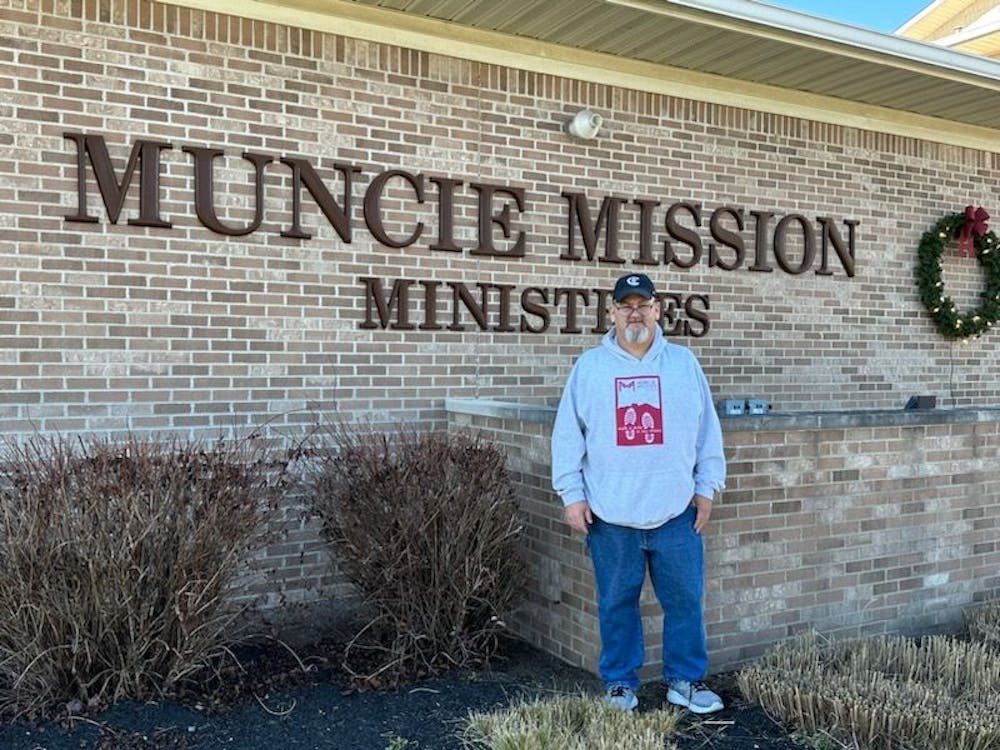Growing up, Andy Ray didn’t have everything he wanted, but he had everything he needed. The Muncie native loved sports and camping. He was an average student who spent free time with friends. In high school, he began drinking at parties, but alcohol became a way to cope after his girlfriend and parents died within a few years of each other.
For the next 10 years, alcohol numbed him. And when it didn’t numb him enough, he turned to pain pills and heroin. Those were his favorite drugs, but he didn’t say “no” to others. He served time for counterfeiting and fraud and was "in a bad place," he said, when he came out.
“I decided one night I was going to get it all over with,” Ray explained. “I bought a bunch of pills and some heroin, and I shot them all up, and the next thing I knew, I woke up in a hospital. A friend of mine came to me and asked me if I was done. I told her ‘yes,’ and she told me about the Muncie Mission.”
Faith-filled healing
Muncie Mission is a faith-based organization that works to restore hope and dignity to people in crisis. The nonprofit, which was founded in 1930, offers a range of services for all people, but three programs focus on uplifting men: an emergency shelter, a recovery program and transitional housing. The emergency shelter provides an average of 25,000 men each year with a short-term stay, three hot meals a day, clothing and hygiene products.
The Liberty Street Recovery Program is a Christ-centered, 12-step experience designed for men who are living with addiction. Muncie Mission Men’s Program Director, Danny Smith, said the program is free for participants, who live in dorms and participate in Life Skill Training.
Smith said many men are unwilling to admit they have a problem, and the mission cannot force them to take steps toward healing. Ray was not one of those men, Smith added. He was ready to admit his limitations and open himself to support and ultimate recovery.
“Ray made himself available to relationships, and did not shy away and try to isolate,” Smith said. “He was able to see that he could not do recovery alone and began to reach out to others for help. That was something that has helped him to this very day.”
‘I surrendered everything’
Along with support and friendship at the mission, Ray found faith. Christianity became a major focus on his road to recovery.
“I surrendered everything and learned about the grace and forgiveness of Jesus Christ,” Ray said. “Then I just kept taking little steps forward, and I’ve been sober for eight years and five months now.”
Smith said it is a gift and an inspiration to watch Ray and others improve their lives and devote themselves to God.
“Andy (Ray) is among many men I’ve seen their lives change,” Smith said. “I see a lot of people who don’t change their lives, but maybe they’ll change someday. Sometimes it takes a while. Seeing their transformation gives me hope, and it makes me excited to come to work.”
To support their faith-filled journey, program participants meet regularly with Phillip Miller, the mission’s chaplain. He helps graduates from the recovery program connect with accountability partners and prepare for life outside the mission.
“As God is creator, he knows how to put our life back in order and guide us and direct us. We need his power to overcome,” Miller said. “From the biblical Christian perspective, we see a relationship with God as the ultimate goal in recovery. We don’t require (following Christ), but it is the emphasis of what we do.”
The path forward
Ray now drives a semi-truck and leads a Christian group at the mission. Ray said he values staying in touch with people who understand his journey and are committed to improving their lives and the community, “with God as our guide.”
Ray said one of the toughest and most important steps addicts must take is to break ties with toxic people and situations. Finding a healthy support system is critical to recovery, he added.
“You’ve got to disconnect from everything you know, and that’s a struggle for a lot of people,” Ray said. “But if you're serious and want to change things, the Muncie Mission is a great place. It teaches you tools to help you work through your days. But the program won’t cure you; you have to apply what you learn to truly heal.”
Learn more about the Muncie Mission and its programs at munciemission.org/.
Inform Muncie articles are written by students in the School of Journalism and Strategic Communication in a classroom environment with a faculty adviser.


